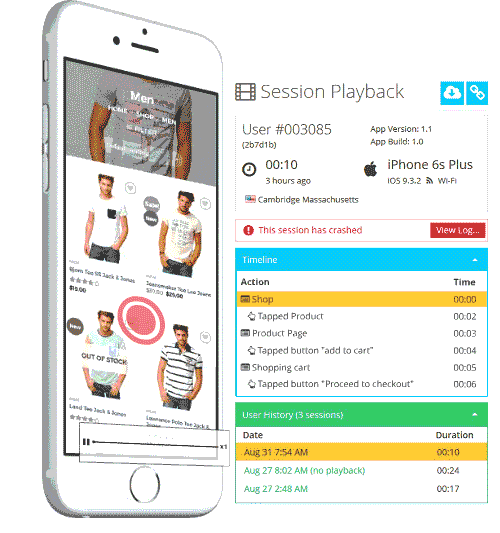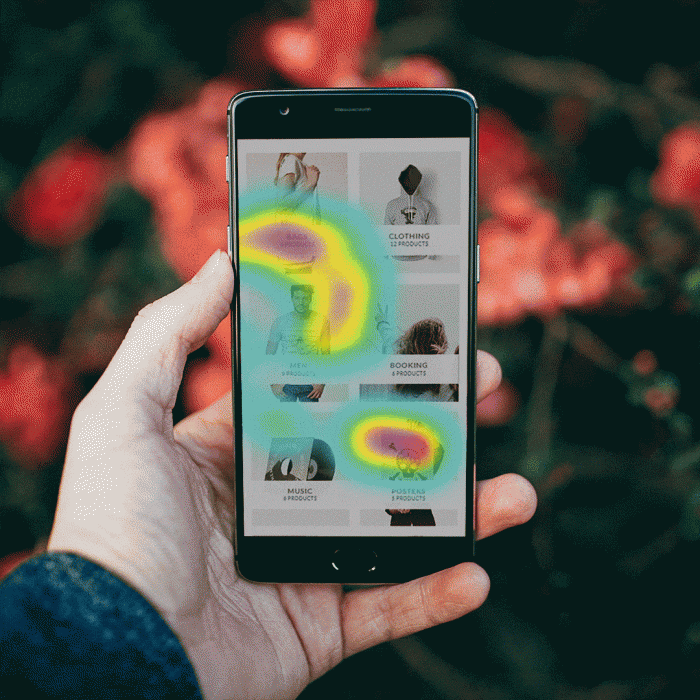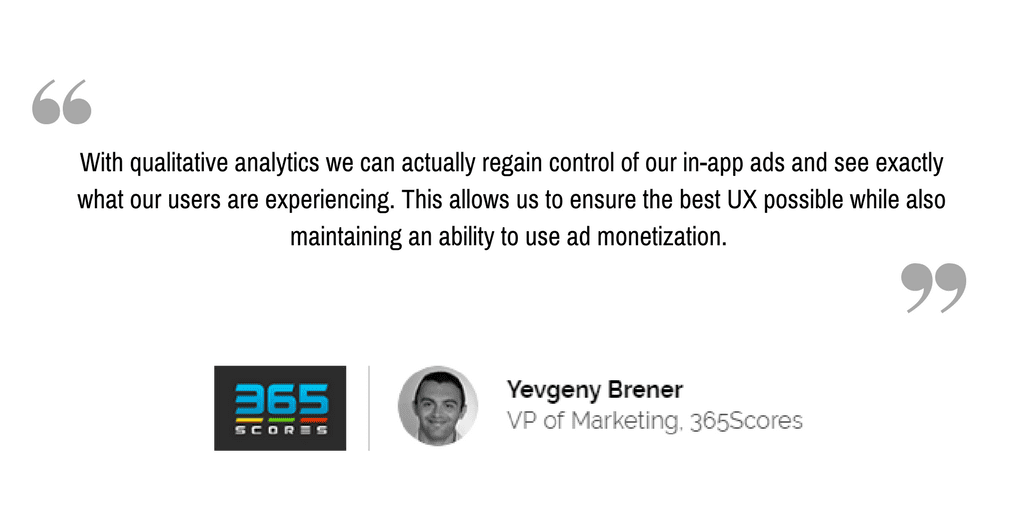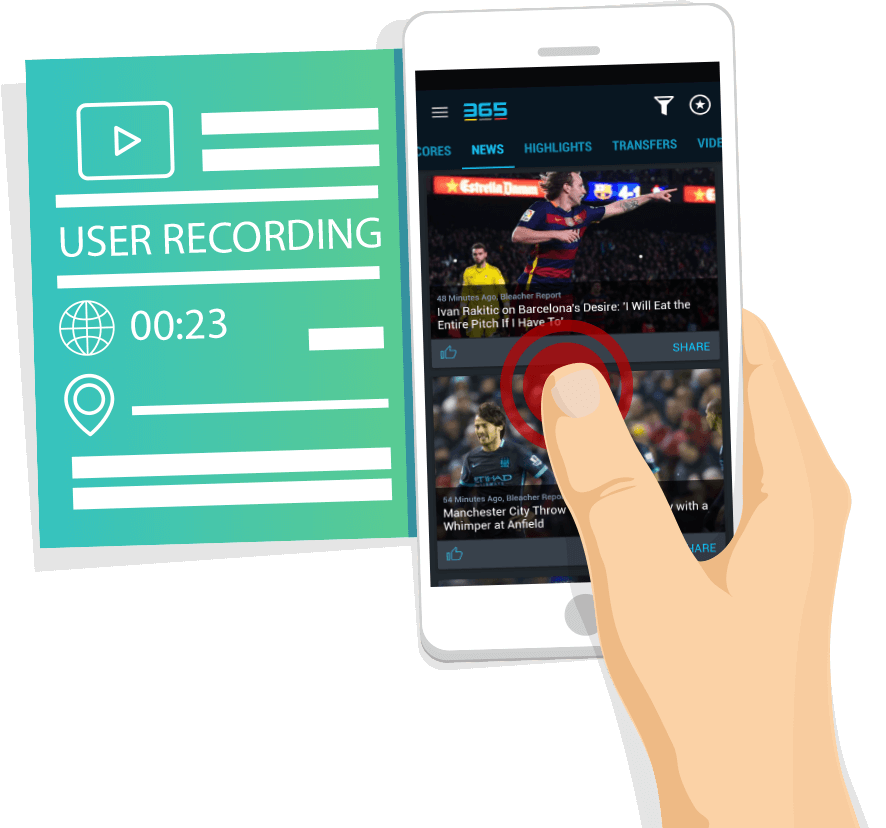Why qualitative App Analytics is like finding money in your old jeans
We’ve all been there. You wake up one morning, all of your go-to jeans are dirty so you reach out to one of the older bunch. And then... JACKPOT! You find a well-forgotten $100 bill in your jeans’ back pocket. Ah, that feeling.
Okay, but what does is it have to do with mobile marketing? Great question.
Well, there’s a new mobile app analytics solution called Qualitative Analytics, that you need to familiarize yourselves with ASAP. This solution will allow you to find “hidden treasures” (like money in the back pocket) within your product’s data. These treasures can then be translated into real money via actionable insights on your marketing/monetization initiatives.
We'll explain: Qualitative Analytics solutions provide you with tools like user session recordings and touch heatmaps. These features will allow you to eliminate all the guesswork you and your team go through while trying to understand your users’ behavior and the reasons behind their actions. Thus, utilizing a Qualitative Analytics solution will not only save you hours of data analysis, but will also allow you to uncover UX/marketing/performance issues you didn’t even know existed. How exactly? We’ll dive into use cases and real-life examples soon, don’t go anywhere.
Qualitative analytics vs numerical data
You see, many product managers and mobile marketers nowadays use quantitative analytics solutions (numerical data) to track their efforts and KPIs. While this is by no means wrong, these solutions come with their inherent blind spots. Numerical data can tell you that something’s happening, typically on an aggregate level, but it will never be able to tell you why.
Your quantitative analytics solution will tell you, for example, that your login screen has a 50% quit rate, which is important to know, but you have no idea why this is happening.
Get your free definitive guide to Qualitative Analytics ebook to learn all about how qualitative analytics can improve your app performance
Qualitative Analytics, on the other hand, is all about understanding the user’s behavior.
It’ll provide you with tools like:
- User session recordings - user recordings are one of the cornerstones of qualitative app analytics. They give you the opportunity to see exactly what your users’ journey looks like in your mobile app. Every tap, swipe, and action of every screen is recorded, allowing you to gain instant insights on your app’s user experience. This includes users’ interaction with in-app ads notifications and in-app messages, allowing mobile marketers to easily optimize their marketing or monetization initiatives.

- Touch heatmaps - this tool aggregates all the data on various gestures used to interact with an app (taps, double-taps, swipes, pinches, etc.). This data is then presented visually, as a heatmap, on a layer placed over the actual app. That way, it becomes easy to literally see where people are interacting with the app and in what frequency.

Seeing exactly where users interact with the screen and when/where their gestures are unresponsive can greatly improve your in-app campaign optimization game. How users interact with your in-app notifications, banners or messages?
The ROI of this solution is unrivaled. Why? Because unlike numerical data, tools like user session recordings will allow you to observe users’ interaction within your app on an individual level, and touch heatmaps will allow you to uncover usability issues. These will make it easier and quicker for you to learn about users’ behavior and preferences, definitely more than analyzing numerical data. You can put yourself in your users’ shoes, and that alone- is priceless.
Use case: How 365Scores app used Qualitative Analytics to optimize their in-app ads
365Scores is an innovative sports app that allows users to get the content they actually want on their favorite sports. A notable leader within the sports category, 365Scores has over 15 million downloads from both app stores.

365Scores is a free app, and thus, its monetization strategy is built around in-app ads.
Ads can be a great source of revenue for your app and will allow you to scale and grow, when done right. What do I mean by “done right”? Well, if not optimized or monitored correctly, in-app ads can seriously hurt your app UX, your app performance and even offend users.
Reasons why users hate in-app ads:
- There's no incentive to click
- Your ads are too small
- There's no relation
- Your ads are disruptive
- Users don't trust your ads
365Scores turned to one of the most powerful tools Qualitative Analytics has to offer - user session recordings, to monitor the type of ads shown to its users. This allowed 365Scores to be proactive- they no longer had to wait to receive a complaint from their users. By watching user session recordings from all over the world, their team was able to see exactly how ads appear to their users and how an ad potentially affects the user experience. They were also able to seamlessly share those recordings amongst their support team, which has aided in proactive outreach and service for their users.

Additional use case:
In addition to ad optimization, Mobile marketers can (and should) utilize Qualitative Analytics’ session recordings to observe users’ interaction with the various marketing campaigns they’re running.
Think about it this way - with numerical data, you know that your CTR rate, for example, is 30%, but you have no idea what is going on behind the scenes. With session recordings, you can literally see exactly how users react to and interact with your in-app messaging, referral programs, banners, etc. Is it the placement that’s killing your CTR? Or perhaps it’s banner’s color, size or text? Time to find out.
Recommended tools:
Whether you work on a mobile app or a desktop-focused product, we’ve got the tools for you!
For mobile marketers: I’d recommend using a qualitative mobile-analytics tool, like Appsee.
Appsee is one of the pioneers in the Qualitative Analytics space and is definitely the leading solution when it comes to mobile apps, specifically.
Appsee’s platform will provide you with everything you need, from quantitative analytics dashboard (numerical data) to track your basic KPIs, to more advanced features like: user session recordings, touch heatmaps, crash reporting, users flow, navigation paths, etc.
Using such tool will allow you to find your own “hidden treasures” within your app.
Appsee offers a 14-day free trial, so I would recommend to just test it on your app and see what you can already discover.
For desktop marketers: I would recommend using SessionCam.
SessionCam offers one of the best qualitative analytics suites for desktop professionals, including features like: user session replays, heatmaps (including mouse movements and attention maps), conversion funnels, and more. SessionCam provides a 21-day free trial.
Final words
To sum things up - qualitative analytics is about understanding the users’ behavior, stepping into their shoes and experiencing the product just like they do. This allows mobile marketers to uncover issues with their in-app ads they were not aware of, and see how users interact with their in-app campaigns (push, messaging, banners, etc.).
While finding money in a pair of old jeans is quite a rare (and happy) occasion, finding truly useful and actionable insights about your product with a qualitative analytics solution is quite common. Qualitative analytics is now the standard for many of the leading apps, and I urge you to try it so you can understand just how powerful this is.
Thanks to Connor Iny for sharing his thoughts and opinions in this post. Connor is part of the Inbound Marketing team at Appsee. He is a passionate social media and content ninja and he can talk about tech and Android for days. Connor also LOVES surfing (waves) and skateboarding and when it comes to food, he's all about burgers and fries.










